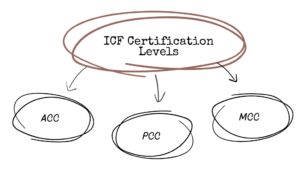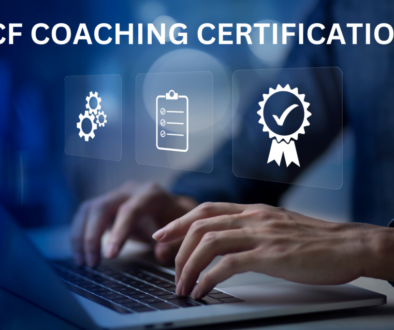ICF Certification Requirements: What You Need to Know
Are you interested in learning more about ICF certification requirements? If so, you’ve come to the right place. The International Coaching Federation offers a prestigious certification for professional coaches. To obtain an ICF certification, candidates must fulfill specific ICF certification requirements. These requirements may include completing accredited coach training programs, logging a certain number of coaching hours, and demonstrating a solid understanding of the ICF Core Competencies.
Additionally, there are different levels of ICF coaching certification, including ACC (Associate Certified Coach), PCC (Professional Certified Coach), and MCC (Master Certified Coach). Aspiring coaches can explore various ICF coaching certification programs to find the one that best suits their needs and career goals. Understanding the ICF certification requirements is essential for individuals looking to establish themselves as professional coaches and enhance their credibility within the industry.

Step-by-Step Guide to Achieving Your ICF Certification
Obtaining an ICF coaching certification from the International Coaching Federation (ICF) is a rigorous but rewarding process. To meet the ICF certification requirements, enrolling in ICF coaching certification programs that the ICF accredits is essential. These programs are designed to provide aspiring coaches with the necessary training and mentorship to develop their coaching skills to the level expected by the ICF.
The first step towards ICF coach certification is to ensure that the coaching program you choose aligns with ICF’s core competencies and code of ethics. It is also vital to accrue the required coaching experience and undergo mentor coaching to refine your skills. Additionally, familiarizing yourself with the ICF Coach Core Competencies and the ICF Code of Ethics is crucial to meeting the ICF certification requirements.
By following this step-by-step guide and incorporating the required keywords such as “international coaching federation,” “ICF certification,” and “ICF coaching certification,” you can effectively meet the ICF certification requirements and progress towards becoming an ICF-certified coach.
How to Find the Best Affordable ICF Coaching Certification Programs
To meet the ICF coach certification for success, it’s crucial to understand the International Coaching Federation (ICF) guidelines. The ICF certification requirements are designed to uphold high standards in coaching practices and ensure coaches are well-equipped to serve their clients effectively. Individuals should consider enrolling in affordable ICF coaching certification programs offered by accredited training institutions to attain ICF coaching certification certification. These programs are specifically structured to help participants meet the rigorous standards set by the ICF. Aspiring coaches should familiarize themselves with the ICF’s core competencies and code of ethics to align their coaching practices with the organization’s principles. Additionally, seeking mentorship from experienced ICF-certified coaches can provide valuable insights and guidance throughout the certification process. By diligently fulfilling the ICF certification requirements and committing to continuous professional development, coaches can position themselves for success while upholding the standards set by the International Coaching Federation.
Common Challenges in Attaining ICF Certifications and How to Overcome Them
 Acquiring ICF certification can be a rigorous process, and aspiring coaches might encounter several challenges. One common challenge is understanding the detailed and specific requirements of the International Coaching Federation (ICF). Navigating through the various ICF coaching certification programs and grasping the nuances of each can be overwhelming.
Acquiring ICF certification can be a rigorous process, and aspiring coaches might encounter several challenges. One common challenge is understanding the detailed and specific requirements of the International Coaching Federation (ICF). Navigating through the various ICF coaching certification programs and grasping the nuances of each can be overwhelming.
Additionally, many individuals need help accruing the necessary coaching experience to fulfill ICF certification requirements. Meeting the coaching hours prerequisite often requires dedication and strategic planning. Aspiring coaches must seek mentorship and guidance from experienced ICF-certified professionals to overcome these challenges. Joining a professional network or enrolling in mentorship programs can provide invaluable insights and support.
Furthermore, staying organized and prioritizing time management is crucial in ensuring that all ICF certification requirements are met. Creating a detailed plan and establishing achievable milestones can help accumulate the necessary coaching hours effectively and fulfill all the prerequisites. By being proactive, seeking support, and staying disciplined, one can navigate the challenges of meeting ICF certification requirements and emerge as a qualified ICF-certified coach.
Popular Tags: International Coaching Federation ICF Certification, Coaching Certification ICF, ICF Life Coach Certification, ICF Certifications, What is ICF Certification, ICF Certification Programs, ICF Coaching Certificate, ICF Coaching Certifications, ICF Executive Coaching Certification.




